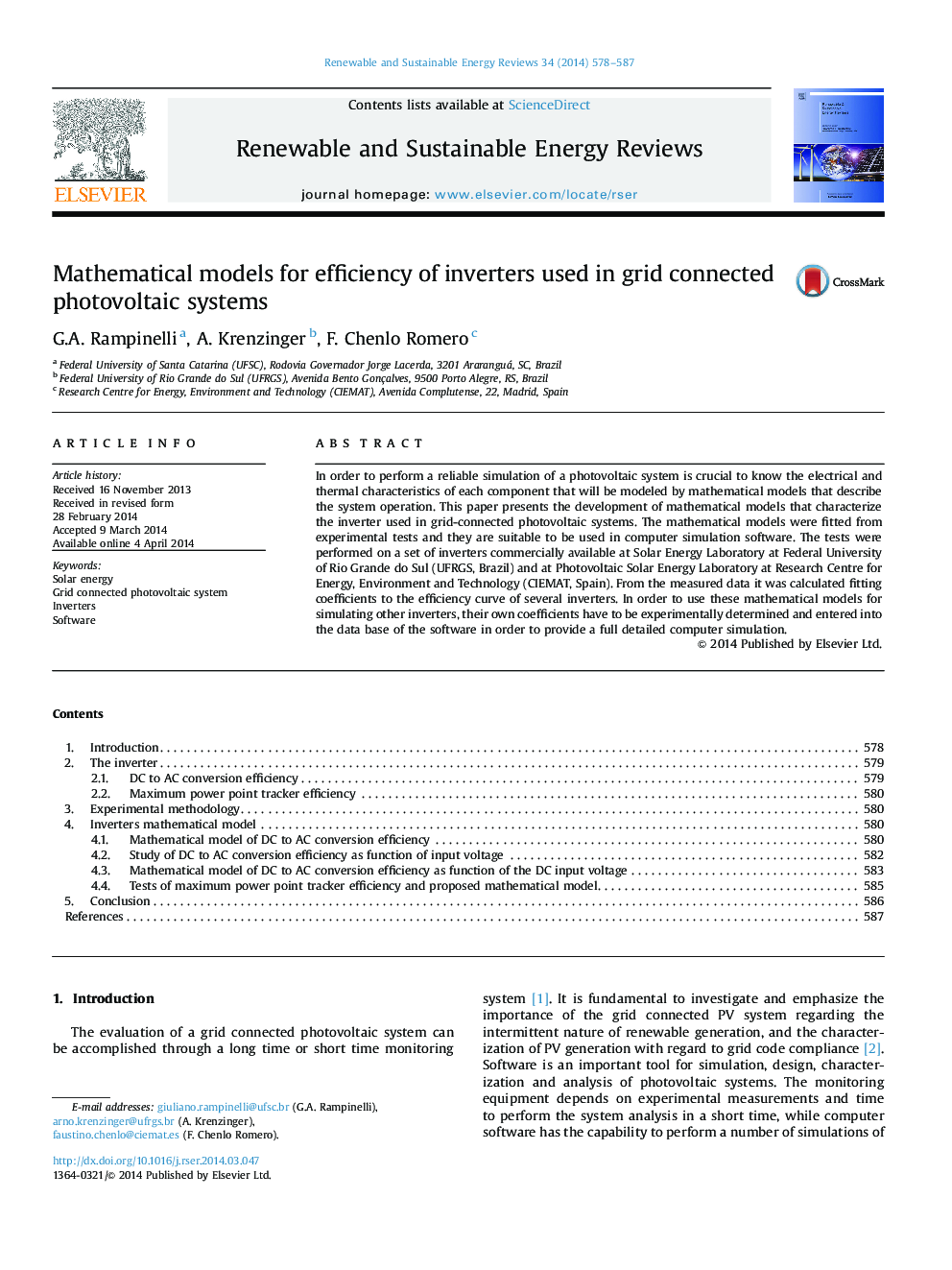| Article ID | Journal | Published Year | Pages | File Type |
|---|---|---|---|---|
| 8120033 | Renewable and Sustainable Energy Reviews | 2014 | 10 Pages |
Abstract
In order to perform a reliable simulation of a photovoltaic system is crucial to know the electrical and thermal characteristics of each component that will be modeled by mathematical models that describe the system operation. This paper presents the development of mathematical models that characterize the inverter used in grid-connected photovoltaic systems. The mathematical models were fitted from experimental tests and they are suitable to be used in computer simulation software. The tests were performed on a set of inverters commercially available at Solar Energy Laboratory at Federal University of Rio Grande do Sul (UFRGS, Brazil) and at Photovoltaic Solar Energy Laboratory at Research Centre for Energy, Environment and Technology (CIEMAT, Spain). From the measured data it was calculated fitting coefficients to the efficiency curve of several inverters. In order to use these mathematical models for simulating other inverters, their own coefficients have to be experimentally determined and entered into the data base of the software in order to provide a full detailed computer simulation.
Related Topics
Physical Sciences and Engineering
Energy
Renewable Energy, Sustainability and the Environment
Authors
G.A. Rampinelli, A. Krenzinger, F. Chenlo Romero,
